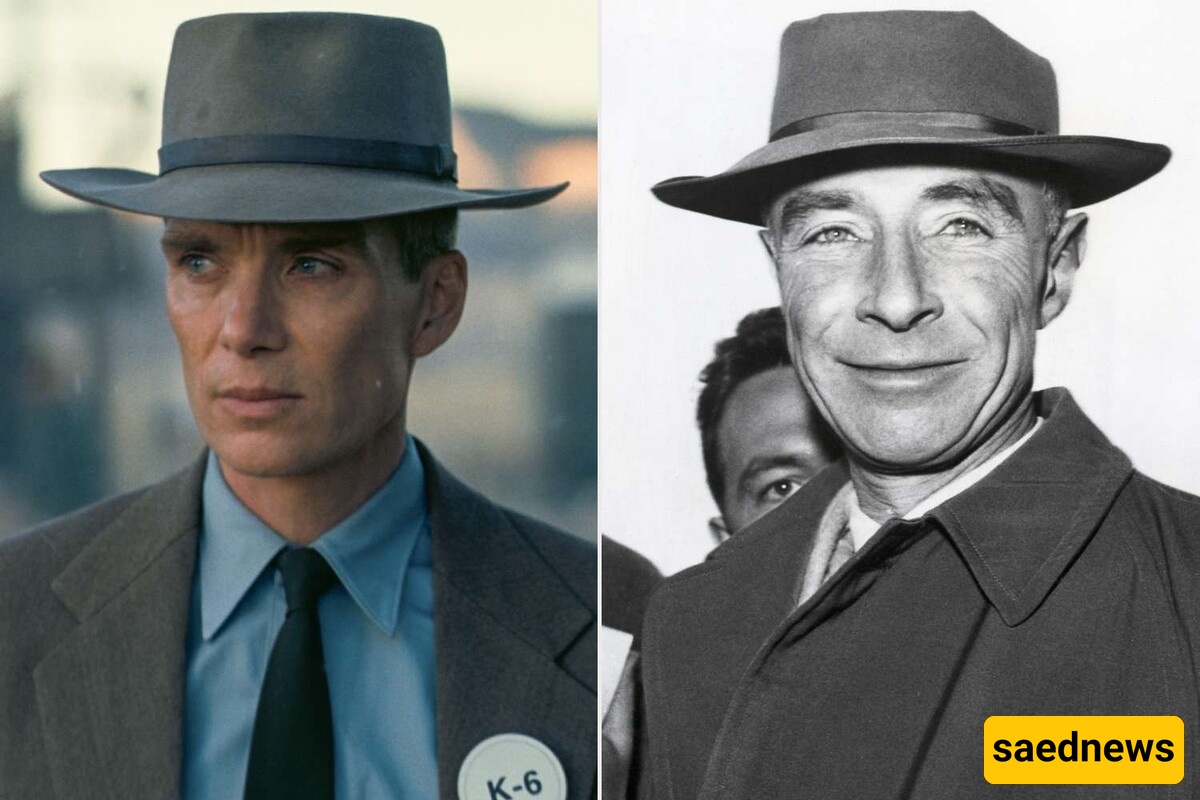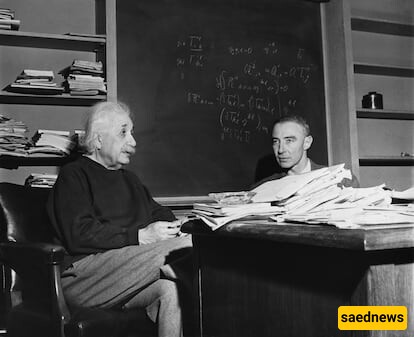SAEDNEWS: This blog post critically examines the complex legacy of J. Robert Oppenheimer, highlighting the ethical dilemmas and political repercussions of his role in the development of the atomic bomb.

According to SAEDNEWS: J. Robert Oppenheimer, often dubbed the "father of the atomic bomb," occupies a contradictory space in the history of science and politics.
Born on April 22, 1904, in New York City, he rose to prominence as a leading physicist during a tumultuous period in history. While he played a pivotal role in shaping the Manhattan Project, his legacy is marred by ethical dilemmas and political fallout that continue to raise questions about the responsibilities of scientists in a politically charged world.
Oppenheimer was born into privilege, son of a wealthy textile importer, which afforded him an education that many could only dream of. He excelled at Harvard, showing particular prowess in subjects like Latin and physics. Despite his impressive academic credentials, one has to question whether his success was more a product of his elite upbringing than his intellect. After graduating in 1925, he went to the Cavendish Laboratory at Cambridge and further intertwined himself with the scientific elite, leaving behind a trail of exclusivity that characterized much of his career.
His subsequent return to the United States saw him rise through the ranks in academia, yet it is essential to scrutinize whether he genuinely contributed to the democratization of scientific knowledge or merely perpetuated an insular scientific community that alienated dissenting voices.

Oppenheimer's post-war years reveal a fascinating irony: the scientist who unlocked the secrets of the atomic bomb found himself a victim of a political firing squad. During the Red Scare, he was accused of disloyalty and suffered a significant fall from grace, losing his security clearance and advisory roles in a dramatic security hearing. While he was not found guilty of treason, the circumstances surrounding his dismissal beg critical questions about whether his previous leftist affiliations had repercussions that were much harsher than warranted.
It is also noteworthy that some of his personal entanglements and ideological beliefs—his involvement in communist sympathies, albeit never formally joining the party—suggest an unsettling duplicity in his character. His embrace of liberal democratic ideals seems at odds with his willingness to engage in political gamesmanship when it suited him.
While Oppenheimer's leadership in the Manhattan Project ensured the successful test of the atomic bomb in 1945, we must critically assess the implications of this achievement. Dubbed a hero for his contributions, the reality is that he was at the helm of a project with devastating consequences for humanity. The bombings of Hiroshima and Nagasaki raised moral questions that Oppenheimer himself grappled with, famously quoting the Hindu text, the Bhagavad Gita: "Now I am become Death, the destroyer of worlds." Yet, did he take sufficient responsibility for his role in unleashing such devastating technology? One wonders if the burden of his intellect was overshadowed by an insatiable ambition to push the boundaries of scientific discovery—no matter the cost.
In his later years, Oppenheimer spent considerable time reflecting on the intersection of science and society. He may have received accolades, such as the Enrico Fermi Award in 1963, but one has to question whether these gestures of recognition were sufficient or sincere given the grave ethical implications of his work.
With the release of previously classified documents in 2014 that partially restored his legacy, the narrative around him continues to morph, benefiting from posthumous sympathy in a climate that often rejects accountability. The 2023 film "Oppenheimer" attempts to portray the complexities of his life but may inadvertently glorify a figure who, instead of standing on solid moral ground, often faltered in the face of political challenges and ethical dilemmas.
In examining Oppenheimer’s life, we must grapple with uncomfortable truths. His contributions to science were indelible, but so were the moral questions that shadow his achievements. As we dissect his legacy, we ought to remain vigilant against the easy glorification of those who, despite their brilliance, became embroiled in ethical failures that shaped the modern world. The case of J. Robert Oppenheimer serves as an essential cautionary tale about the potential perils of scientific ambition unrestrained by moral considerations.

